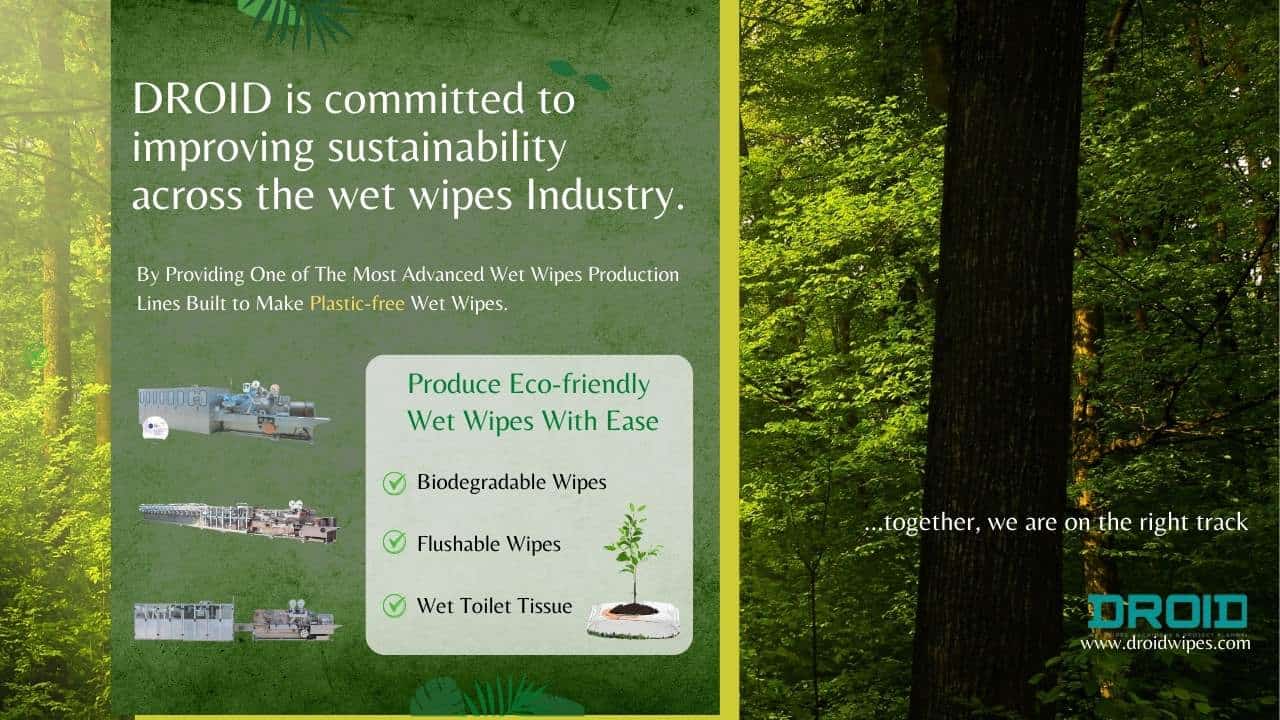Sustainability is a crucial aspect of all industries in today’s world, including wet wipes manufacturing. With growing environmental concerns and changing customer preferences towards eco-friendly products, there is an urgent need for sustainable alternatives. Biodegradable innovations are revolutionizing the wet wipes production industry and leading to a more environmentally conscious future.
Wet wipes have been associated with disposable plastic materials that take decades to decompose, leading to pollution and endangering marine life. Wet wipes manufacturers are increasingly transitioning towards biodegradable materials sourced from renewable sources like plant fibers, bamboo, and cellulose. These materials offer the same convenience and functionality as traditional wipes but are also eco-friendly.
Biodegradable wet wipes have a low environmental impact. They decompose naturally over time, minimizing waste and pollution, unlike regular wipes that persist in landfills for years. This not only helps conserve ecosystems but also reduces the harmful effects of plastic on wildlife and marine environments.
Biodegradable wet wipes are often free of harsh chemicals and toxins, making them safer for both individuals and the environment. Consumers are becoming more conscious of the contents of the products they use and are choosing natural and sustainable alternatives wherever possible. Wet wipes companies can meet the growing demand for environmentally friendly products by adopting biodegradable technology.
Biodegradable wet wipes are versatile and efficient, as well as eco-friendly. These wipes perform just as well as their non-biodegradable counterparts, whether used for personal hygiene, infant care, or home cleaning. Advanced production methods ensure that biodegradable materials retain their structural integrity and functionality, providing customers with a reliable and eco-friendly option for everyday use.
The transition to biodegradable materials is not just a trend; it is a necessary shift driven by consumer preferences and government regulations. Countries worldwide are enacting increasingly stringent rules on disposable plastics and materials that do not decompose naturally, compelling industries to adopt more sustainable practices. Wet wipes companies can meet compliance requirements and demonstrate their commitment to environmental responsibility by investing in biodegradable innovations.
The market for biodegradable wet wipes is rapidly expanding due to increasing consumer environmental awareness. People of all ages, from millennials to baby boomers, prioritize sustainability when making purchase decisions, leading to a higher demand for eco-friendly products in all sectors. Wet wipes producers can tap into this lucrative market and differentiate themselves from the competition by offering biodegradable options.
Biodegradable innovations are transforming the wet wipe manufacturing industry, paving the way for a greener future. By utilizing renewable resources and adopting eco-friendly procedures, wet wipe manufacturers can reduce their environmental footprint and meet the demands of a growing consumer market. Introducing biodegradable wet wipes will play a crucial role in promoting ecological sustainability as people become increasingly concerned about the environment.


